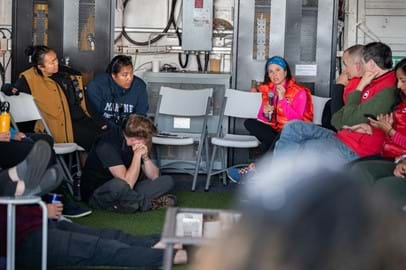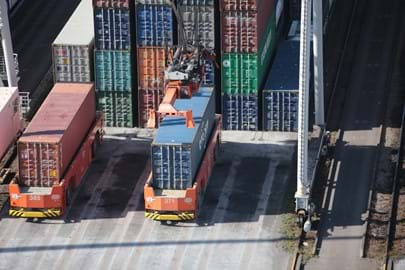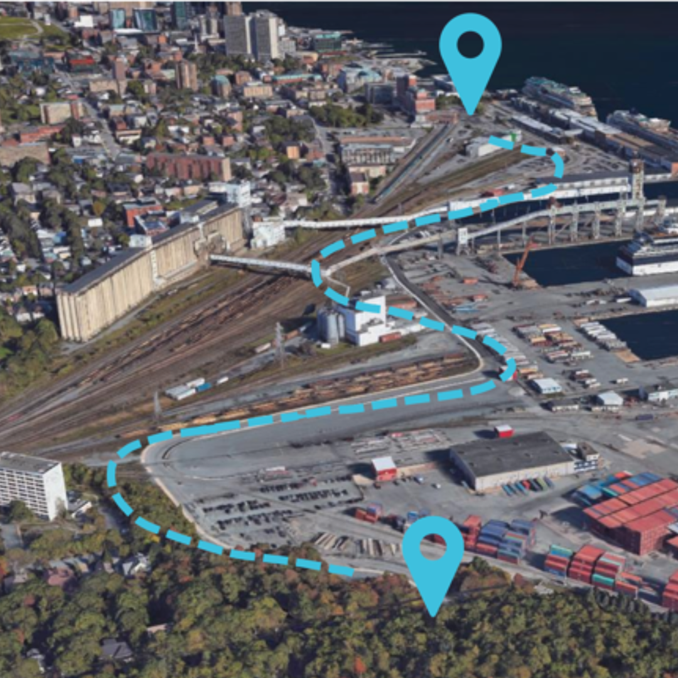
Net-zero and other sustainability goals are changing the demand for job skills
DecarbonizationA new study indicates significant changes in the skills being sought by the maritime industry as it moves towards decarbonization.
The research titled, High Value Skills for a Net-Zero Economy: A Skills Assessment for the Ports, Supply Chain and Maritime Sector, was led by Dr. Sherry Scully, the director of Workforce Development at the PIER, the living lab at the Port of Halifax dedicated to collaboratively finding innovative supply chain solutions.
We’re facing a skills shortage, but there might not be a lack of people so much as the unavailability of people with the skills in demand as the industry evolves
She and her team interviewed maritime enterprises in and around the Port of Halifax, and consulted with the Nova Scotia Apprenticeship Agency and other resources for the study.
“While technical skills are still absolutely required for certain roles, the research clearly indicates that socio-cognitive skills are the No. 1 competency being sought,” Scully relates. “Employers might not know the actual term, but they clearly indicate these abilities when they talk about the kind of people they’re seeking.”

People with good socio-cognitive skills – also called future skills - can analyse, interpret and apply data to solve problems. They also have the resilience to manage complexities and adapt to changes under pressure.
“When something isn’t working out as originally planned, they can respond quickly with new solutions and clearly relate those new actions to team members,” Scully says.
These are individuals who are prepared to change attitudes, practices, regulations and technologies in pursuit of net-zero goals.
They can also work collaboratively under pressure to come up with feasible ideas for seemingly ‘blue sky’ objectives, such as achieving decarbonization within a demanding timeline
Highly transferable, these socio-cognitive skills are in huge demand by related industries also on the path to a net-zero future. According to a 2022 study cited in the report, almost 40% of new jobs in trades, transport, and equipment operations will require an enhanced skills set to keep pace with the industry’s growth and evolution towards more sustainable practices.
Green skills include some new competencies, but mostly refer to applying longstanding knowledge and traditional skills to projects and/or practices that advance sustainability.
Technical green skills will require a combination of formal instruction and on-the-job training. Some of the most significant green skill upgrades will involve the skilled trades, technicians and technologists – all of whom are already in demand by the transportation, construction, renewable energy, and carbon capture and storage sectors. Electrician and electronics workers will require high-voltage training. Welders will need additional training to understand the complexities of newer marine assets equipped with sensors and other technologies. Port workers must learn to safely handle the next fuels.

Employees with digital skills won’t be relied upon so heavily for coding or programming, but rather to use the provided technologies to filter, question and interpret data for knowledge sharing, collaborative problem solving, and navigating complex and integrated systems to enhance connected efficiencies and resource and equipment optimization.
STEM (Science, Technology, Engineering and Math) education will remain in demand, but socio-cognitive skills from all backgrounds are becoming more important, especially as many roles become more collaborative throughout supply chain networks.
You want someone with the critical thinking abilities but also the communications skills to be able to help interpret and enact those ideas
The study further indicated that green skills will come from all educational disciplines and include a larger focus on finance and economics (for project funding and green credits), human resources (to map green skills and recruit people with them), planning and monitoring (to optimize cargo flows), real estate and space planning (for renewable energy structures and vehicular flow), as well as communications and marketing (to relate green strategies). Maritime enterprises might rely heavily on consulting firms initially, although much of the required expertise can be developed in house.
An increasing use of artificial intelligence, digital port management systems, sensors and remote controls to move and track cargo will eventually phase out some manual tasks.

Both mariners and longshore workers will need upskilling to manage new technologies for everything from voyage operations to new procedures for electric cranes, railyard and trucking equipment.
While the pandemic made the public generally more aware of the importance of maritime transportation in maintaining supply chains, there is still relatively little knowledge about the industry, the careers it offers, and how all of it is transitioning with net-zero carbon and other sustainability goals, according to Scully’s research.
The study’s range of recommendations include preparing for change by detailing current job skills to readily identify gaps as net-zero-oriented technologies and processes come into use. It also recommends cultivating a mindset that integrates sustainability in all strategy building and decision-making, rather than it being an afterthought.
Another recommendation is to commit to training workers from transition industries who may not possess a 100% skills match.

“We’re seeking to identify the people who have the desired skills, and either are or might transition from declining industries, especially if provided with a clear pathway to marine,” Scully adds.
Micro-credentialing can speed up the readiness of new or transitioning talent and keep workforces up-to-date, agile and engaged, but formal micro-credentialing programs need rigorous assessment for quality assurance.
Developing a more diversified workforce is another key element. Calling on her extensive networks, Scully is determining the perceptions of the maritime industry among traditionally under-represented individuals within the Indigenous, African-Nova Scotian communities, women’s organizations, as well as newcomers to Canada. “We’re focusing on the existing barriers to potential employment,” Scully says.
Tours of the PIER and the Port of Halifax, along with workshops, are often held for different groups, as well as many students Grades 10 through 12.
By seeing how the PIER works, they might be able to envision themselves in this kind of workplace, as well as understand more of what happens behind the scenes when they see a vessel go by downtown Halifax
Scully is also working on pinpointing the aspects of the industry that attract young workers, as well as sparking a greater awareness of the marine mode and interest in socio-cognitive skills among post-secondary youth.
“There’s still a lack of awareness generally, and when young people do think of marine transportation, it tends to be only about Navy or Coast Guard positions, or the outdated notions from movies of big burly men out in the cold lifting heavy boxes,” she notes. “The industry has modernized and evolved, and we need to work on shifting the narrative to reflect this.”

The PIER’s recent Green Pathway Challenge invited post-secondary students in Nova Scotia to form teams and use their socio-cognitive skills to come up with ideas for creating safer, greener walkways for pedestrians along the Halifax waterfront with prizes for the top three submissions.
Scully is also working with post-secondary educational institutions in Nova Scotia to help develop green skills for the industry through work-integrated projects, including several capstone projects that focus specifically on innovative solutions for the maritime supply chain.
The PIER is collaborating with the colleges, universities and training facilities in Nova Scotia with the goal of reviewing programs to see what new skills training might be needed for a decarbonized future and what might soon be phased out. “We definitely need training for the new electric-powered equipment and new energy sources, such as hydrogen, but with transitional hybrid models, we might also need to retain some of the traditional training for some time yet,” Scully elaborates.
Her research also suggests that sharing knowledge not only across regions but nations is another key factor, with the study noting that international partnerships can facilitate swifter knowledge transfer, capacity building and technology adoption.
